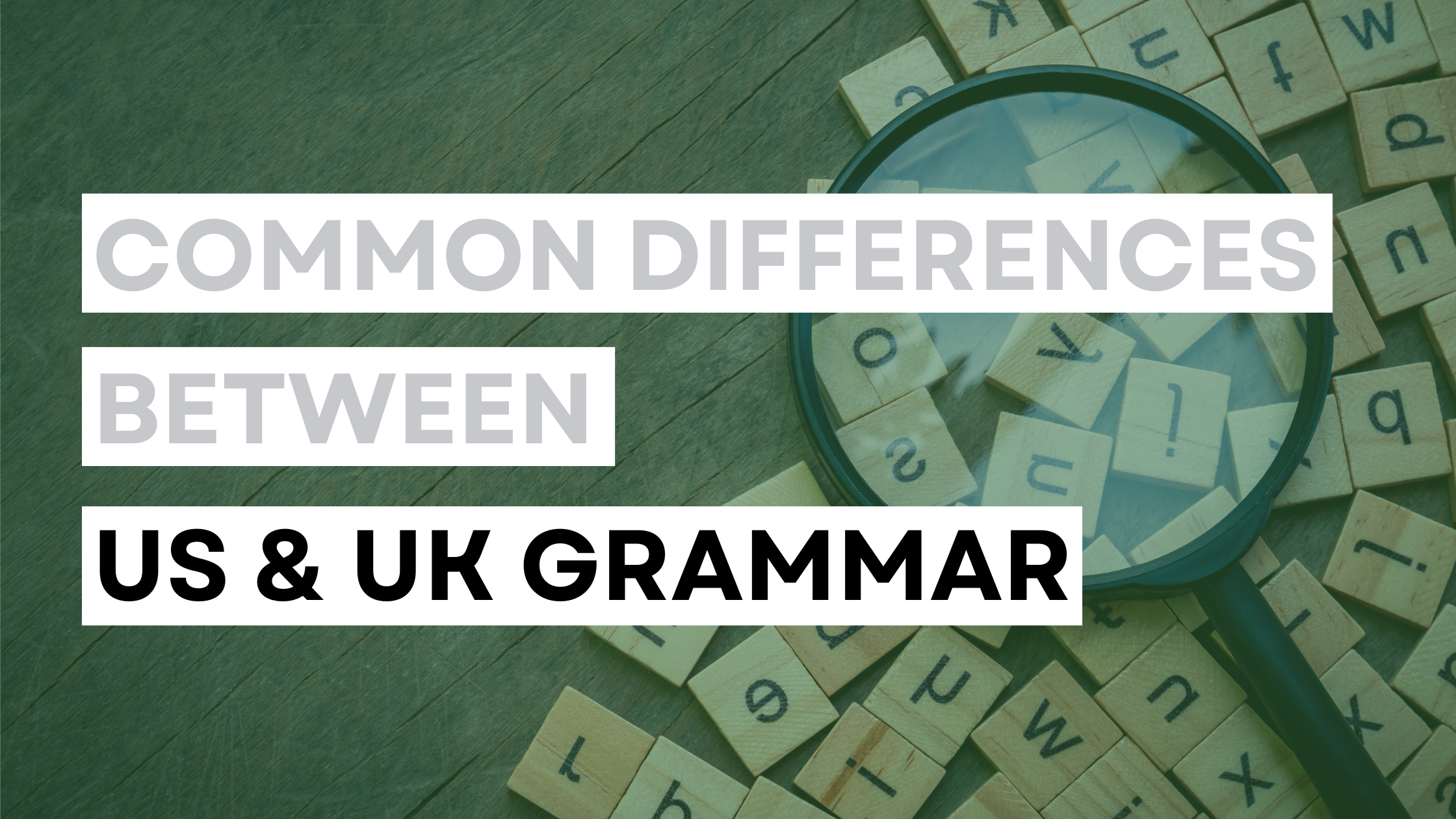If you've ever found yourself second-guessing whether to write "colour" or "color," "realise" or "realize," or debating the placement of punctuation marks around quotation marks, you're not alone. The differences between British and American English can be subtle yet significant, and they go beyond just spelling. At English Editorial Solutions (EES), we specialize in editing, writing, and proofreading for clients worldwide, ensuring that their content aligns with the appropriate style, whether it's for a UK-based journal, an American business report, or a global audience.
Spelling is often the most noticeable difference between US and UK English. American English tends to favor simpler spellings, thanks in part to Noah Webster, who sought to standardize and simplify English spelling in the early 19th century. This led to variations such as "color" (instead of "colour"), "honor" (instead of "honour"), and "traveler" (instead of "traveller"). Meanwhile, British English retains many of the original spellings derived from French and Latin. One common point of confusion arises with words ending in "-ise" or "-ize." In the UK, both "realise" and "realize" are often considered acceptable, but American English consistently uses "realize." For those who frequently switch between the two versions of English, being consistent is key, which is where professional editing services like EES come in handy.
Punctuation can be a trickier beast. One of the most well-known differences is the use of quotation marks and where punctuation falls in relation to them. In American English, commas and periods typically go inside the closing quotation mark, regardless of logic. For example: "I love reading," she said. In British English, however, punctuation follows logic, meaning it is placed outside unless it is part of the quoted material: "I love reading", she said.
Another notable punctuation difference is the Oxford comma. This is the comma placed before the final conjunction in a list: "apples, oranges, and bananas." American English tends to favor it, while British English often omits it unless it’s needed for clarity. At EES, we always consider the style guide or preference of our clients, as some publications—such as The Oxford University Press—do endorse the Oxford comma, even in British English.
Grammar distinctions may not always be as immediately obvious, but they do exist. For instance, collective nouns in British English are often treated as plural, while in American English, they are singular. A Brit might say, "The team are winning," whereas an American would say, "The team is winning." Similarly, the past participles of certain verbs differ. In the UK, "learnt," "burnt," and "dreamt" are common, whereas Americans typically use "learned," "burned," and "dreamed." While both are technically correct, sticking to one system helps maintain consistency, which is crucial in professional writing and editing.
Even small details like prepositions can vary. In American English, one would say, "on the weekend," while in British English, it’s "at the weekend." Likewise, Americans tend to say, "write me," whereas British speakers would say, "write to me." These differences can trip up non-native speakers and even native speakers unfamiliar with the other variety, which is why careful proofreading is essential when writing for an international audience.
At EES, we understand that maintaining the right style is not just about following arbitrary rules; it’s about ensuring clarity, professionalism, and consistency in communication. Whether you're drafting an academic paper for a British university, writing marketing materials for an American audience, or producing content for an international readership, being aware of these linguistic differences is essential. Our editing and proofreading services ensure that your writing adheres to the appropriate conventions, saving you time and ensuring your message is as polished and effective as possible.
Ultimately, whether you prefer the British "theatre" or the American "theater," what's most important is consistency. Mixing styles can make writing appear careless or unprofessional. If you ever feel unsure about which version of English to use, EES is here to help. With our expertise in both UK and US English, we ensure that your writing meets the highest standards

